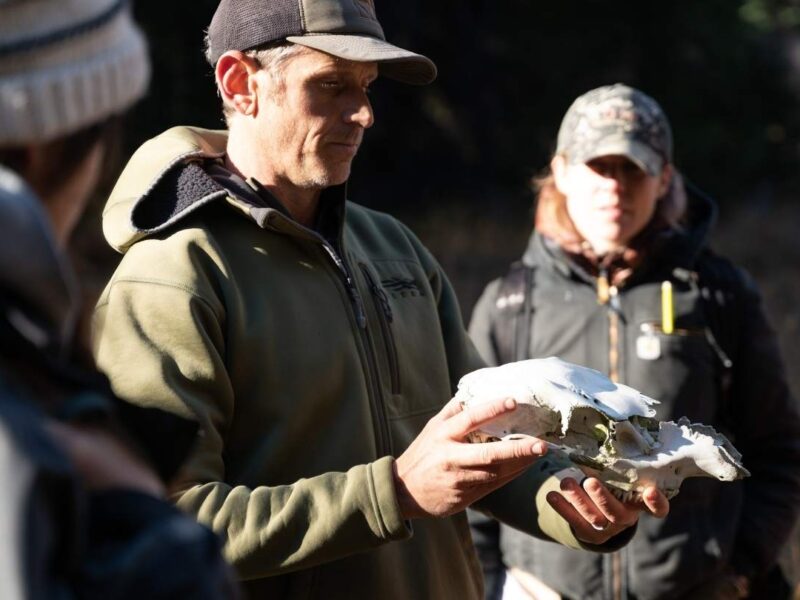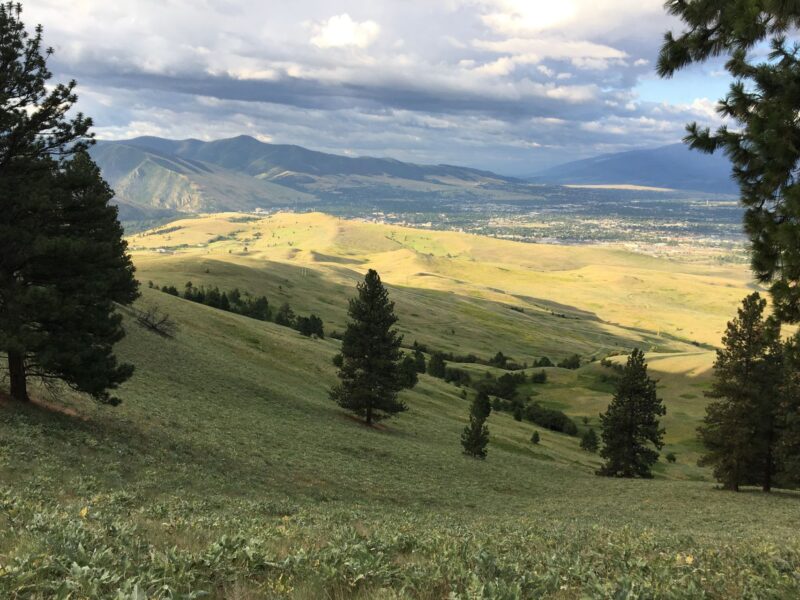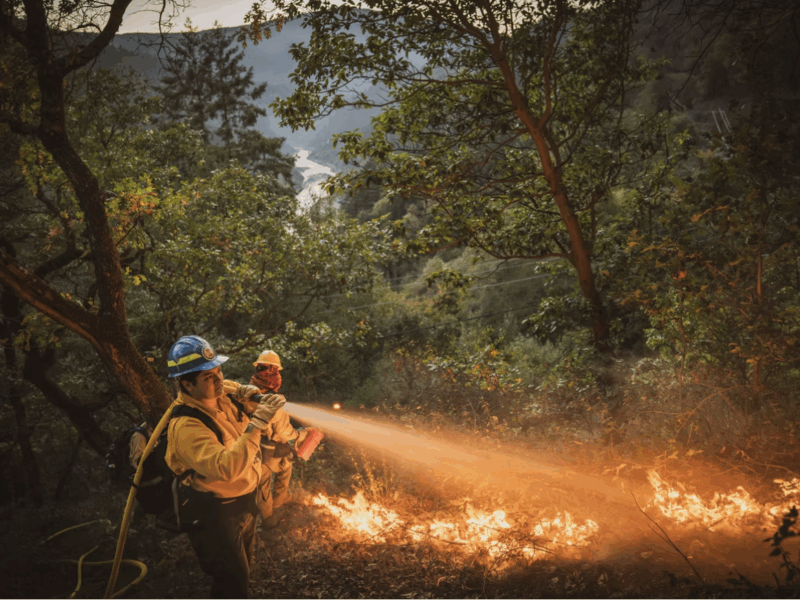Seek Collaboration: Valuable Reflections of a Ranch Apprentice
As a young woman who did not grow up on a ranch, I’ve learned that I’m responsible for a lot of terrible, horrible, no good, very bad ranching.
On a cold morning with clear skies, I was driving our feed truck, unrolling a fresh bale of alfalfa hay to our heifers. I stalled the truck five times before getting it into gear, dropped the bale on the bed of the truck and continually lost control of it as I was rolling it out. Later that afternoon I went to feed my friend’s horse, Sacha, with Nell, my Border Collie pup. Nell bit Sacha’s heels, sending her into a full-out gallop through the pasture, with Nell taking off behind her. The two were at top speed, one after another, and of course I couldn’t call them off. Nell turned instead to chase a deer over the hill, and Sacha was now out of sight, probably still galloping and traumatized by the pursuit. These stories would be cute if this all happened at the start of my apprenticeship through Quivira’s New Agrarian Program, but no, they happened just a couple weeks ago.
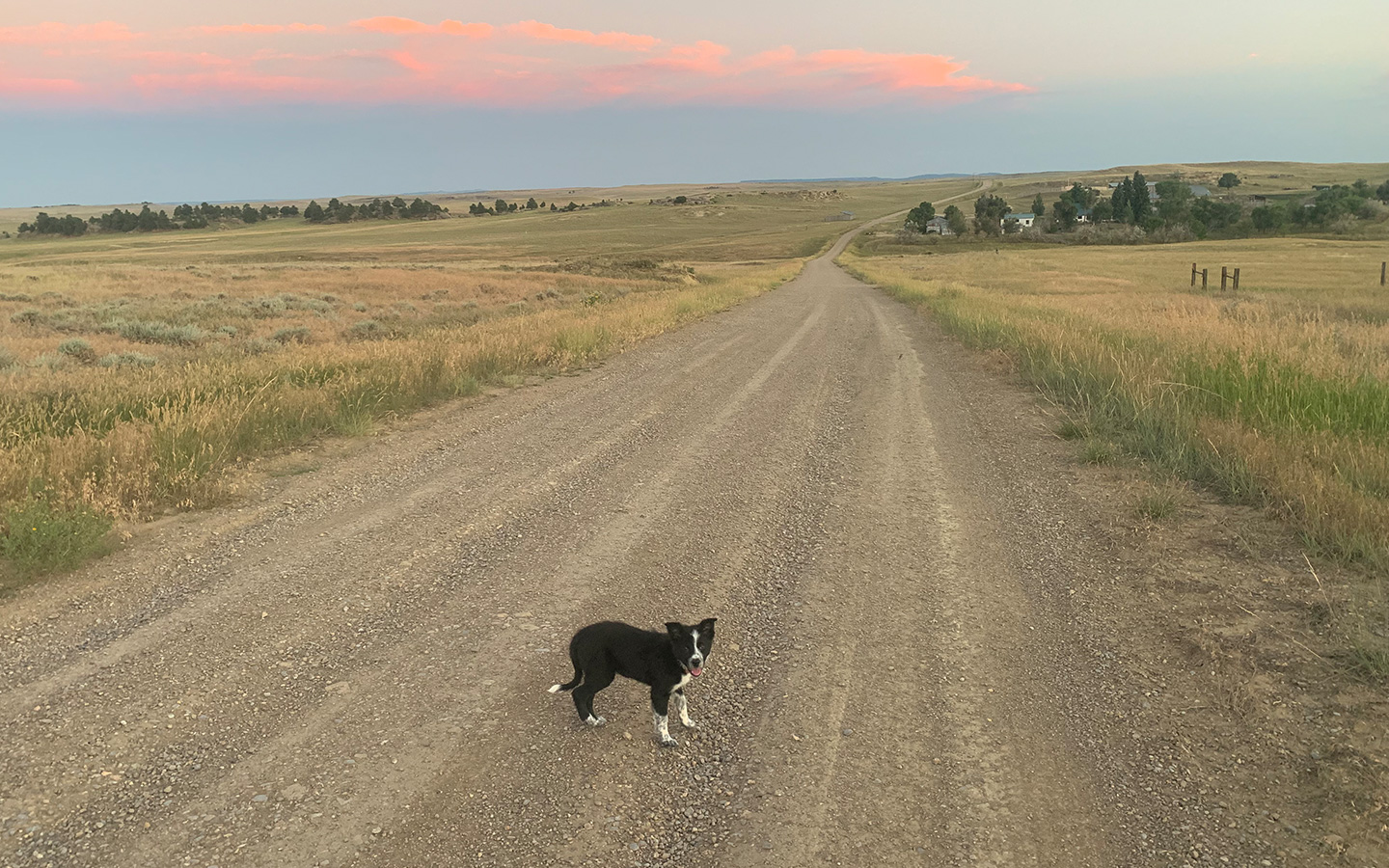
I’m not sure if there’s an adequate way to quantify the skills I’ve gained during these 8 months. Some have offered determining what shade of green I am, as in where I am at on the novice scale (I used to be bright green, now I’m more of a chartreuse), what my skill level on a chainsaw is from 1-5, or how fast it takes me to change a tire. What I do know is that ranching is a lifelong commitment to learning, and we are always just “arriving,” as my mentor (and for-real Buddhist priest) Bill Milton always says. My shortcomings may still be numerous, but my willingness and gusto for learning are endless.
The Milton Ranch is objectively the most beautiful place on earth (and I hope all land stewards feel this way about the land they manage). However, while I do subscribe to commonly held views of the serenity of open spaces and find comfort in pastoral beauty, there are other, less comfortable emotions that these Montana rangelands bring about. I feel my privilege is enunciated and past traumas are more vivid; there’s nowhere to hide from myself. Maybe that’s a good thing.
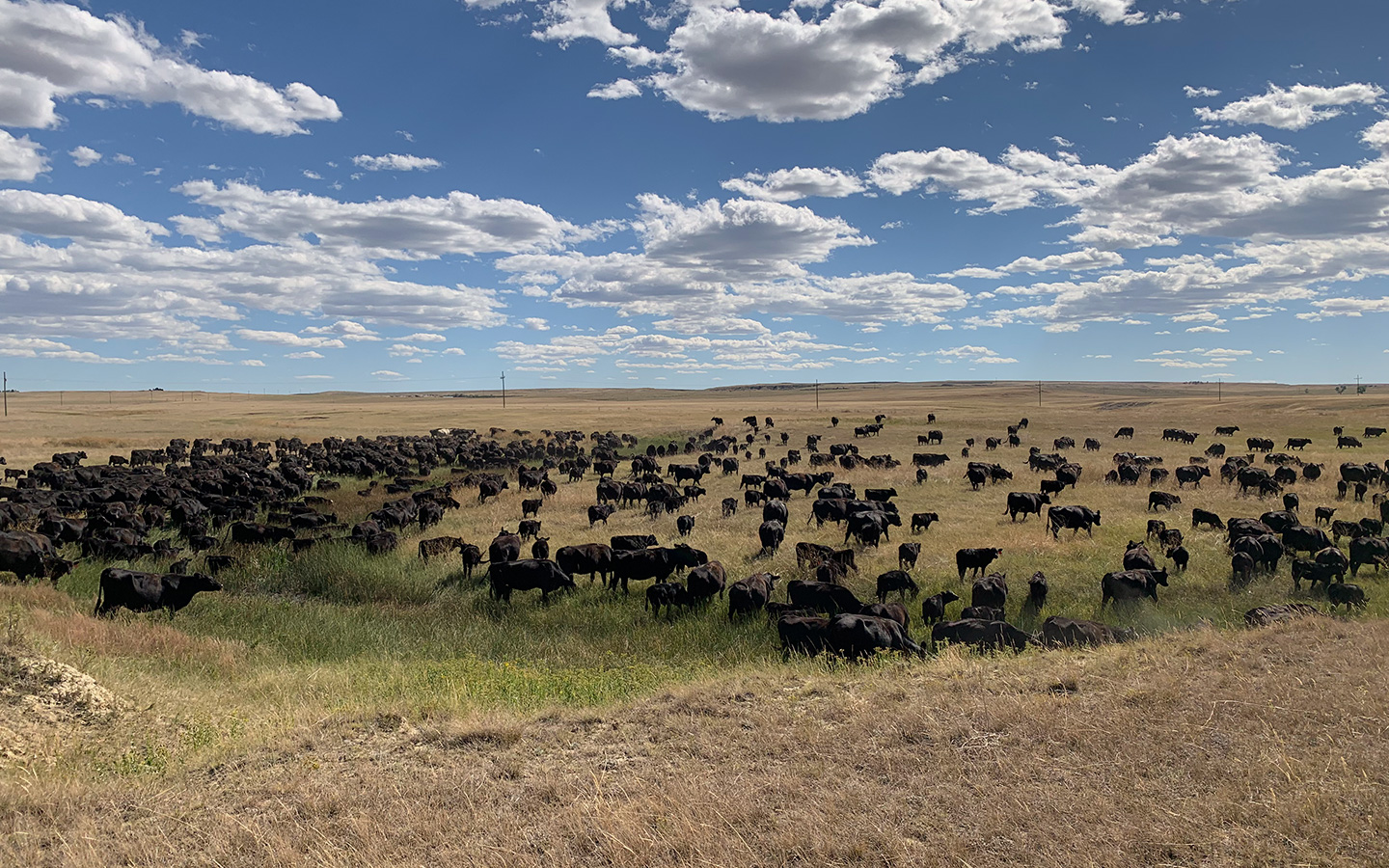
I’ve also learned that there are such things as stupid questions, you just have to find people who are kind enough to answer them. My mentors and our neighbors here are those people. Dana, my other mentor, has taught me that cultivating an outlook that is both nurturing and empathetic is as important as any other skill I’ve learned. My coworker Ryan, seemingly the most-liked person in Roundup, has taught me how to shoot guns, patch tires and create deep relationships with people while being true to myself. My puppy, who feels the world through her mouth (she loved eating her first snowflakes), has taught me about unconditional love. And our heifers (the herd which I feel closest to, probably because I’m also a heifer), have brought me back to the sisterhood of my all-girls high school. These loving relationships I’ve formed have been the most unexpected part of my time here. This community reminds me of bell hooks’ notions of communal love; “The love we make in community stays with us wherever we go. With this knowledge, we make any place we go a place where we return to love.”
We’re all hungry to create change in our agricultural systems, whether by adopting better grazing practices, applying holistic frameworks or growing healthier food for our community. I still don’t know how to create the ideal future for agriculture, but I do know that we can’t do it alone. Bill has taught me so many things– why he loves winterfat, why he hates threeawn, why we move cattle daily, why he loves hearing Sprague Pipits in June, why he hates barbed wire. But the most important lesson he has taught me is to be available to others and to always seek collaboration.
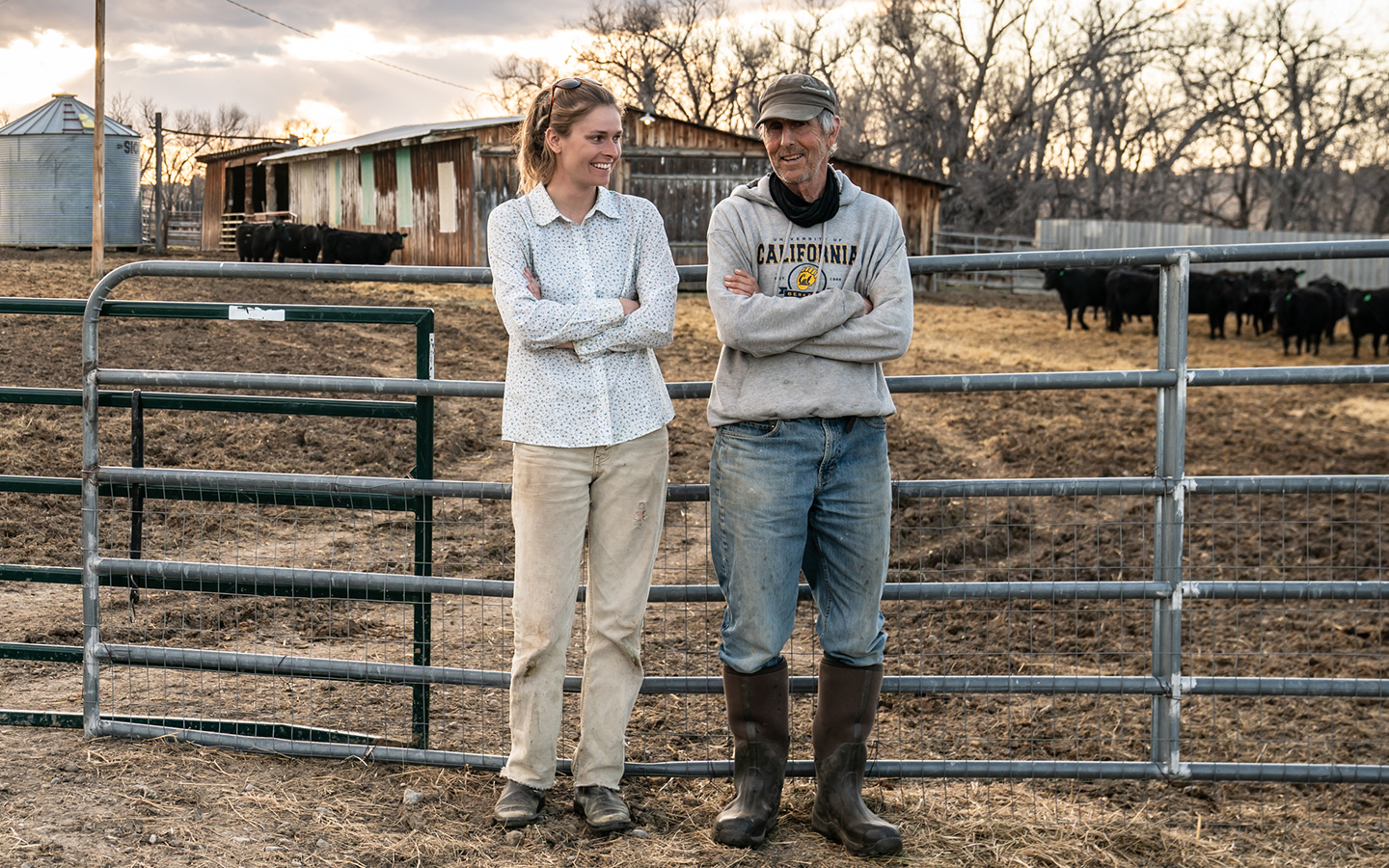
At the beginning of my apprenticeship, Bill had me sit in on various Zoom meetings, listening to discussions about how to set up grassbanks to catalyze land access for young producers, and hearing simple questions like: How can we collect and organize range-health data to leverage our shared understanding of how, as land managers, we are positively impacting the Northern Plains? I felt out of place and out of context– I barely knew how to hold a pair of fencing pliers. Who was I to sit in on such conversations? Eight months and many Zoom meetings later, I can visualize my role in these conversations and a future in Montana’s ranching community. Plus, fencing pliers fit pretty well in my hands now.
I have no plans of leaving this side of Montana….ever. I’ve decided to press on with a second-year apprenticeship with Bill, Dana and Ryan, and I can’t wait to look back on this year and laugh at all these stories of my horrible ranching. Because next year I won’t make any mistakes, right? Right?!


